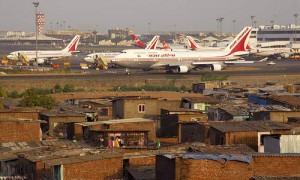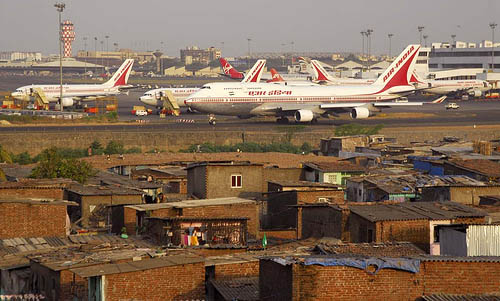 Trck2Realty Exclusive: Western suburbs of Mumbai are bursting at its seams, and its infrastructure facilities are outdated. Draining systems built in the times of the British era are still prevalent in the city. There is a dire need to overhaul this system.
Trck2Realty Exclusive: Western suburbs of Mumbai are bursting at its seams, and its infrastructure facilities are outdated. Draining systems built in the times of the British era are still prevalent in the city. There is a dire need to overhaul this system.
Also, more spaces for children such as parks, play grounds, etc. are needed. Most redevelopment projects encompass amenities such as parks, play grounds, etc. Having said that, infrastructure definitely needs to be boosted in order to make redevelopment a success.
Overall suburban Mumbai has a density of 20,925 persons per sq. km which is twice as many people as that in New York (10,630 persons per sq km). Currently, the infrastructure in the western suburbs is woefully inadequate. For redevelopment to be effective, it is imperative to boost the infrastructure in the region. Better mode of transport, improved sanitary conditions, etc. is the need of the hour.
Some prominent infrastructure initiatives have been taken including the World Bank supported Mumbai Urban Transport Project, Mass Rapid Transit systems like Metro Rail Project and Mono rail. However, there is still scope for improvement in this area.
Anshuman Magazine, CMD of CB Richard Ellis-South Asia candidly rejects the theory of standalone redevelopment projects making any significant impact on the demand-supply dynamics of the western suburbs. He, however, cautions on the challenges before this large-scale redevelopment model.
“Only cluster redevelopment of the entire region can increase the supply and arrest the price. But then there are so many roadblocks for this model to be taken off. Moreover, when clearances are such a big issue for any redevelopment project, cluster redevelopment project, if takes say five years to get clearances can even out any benefit,” says Magazine.
Devang Varma, Director, Omkar Realtors & Developers believes this model of redevelopment business holds a strong challenge. “Very few industry players, which include Omkar, have managed to make a success of it. It is vital that the government introduces extremely competitive guidelines as an entry point to safeguard the interest of customers and other stakeholders and to boost the pace of redevelopment,” says Varma.
Diipesh Bhagtani Executive Director Jaycee Homes feels such redevelopment can be a lengthy and risky process. Members sometimes do not give their consent for the process of redevelopment easily. This can stall the project for a long time.
“On the other hand, redevelopment offers huge opportunities for developers to continue working in metropolitan space starved cities. Yes, the time taken is longer and there are many tenant issues, but the upfront cost of land is lower. Redevelopment also offers a great opportunity for developers to acquire land parcels in prime locations. Thus, the returns on investment, by far, outweigh the problems associated with redevelopment,” says Bhagtani.
While redevelopment is set to change the urban landscape in the western suburbs of Mumbai, it also raises a fundamental disconnect of being worked as a short gap arrangement. After all, the proposed redevelopment post DCR in Mumbai will only partially increase the supply without affecting the price range much.
Moreover, load on the existing infrastructure is something that is hardly being addressed. It is time for a fresh approach to long term sustainable redevelopment by integrating Smart City quotient in the redevelopment projects, and hence addressing the challenges holistically.
Cluster redevelopment instead of just housing societies with technological upgrdation of the infra can offer a better and viable answer





